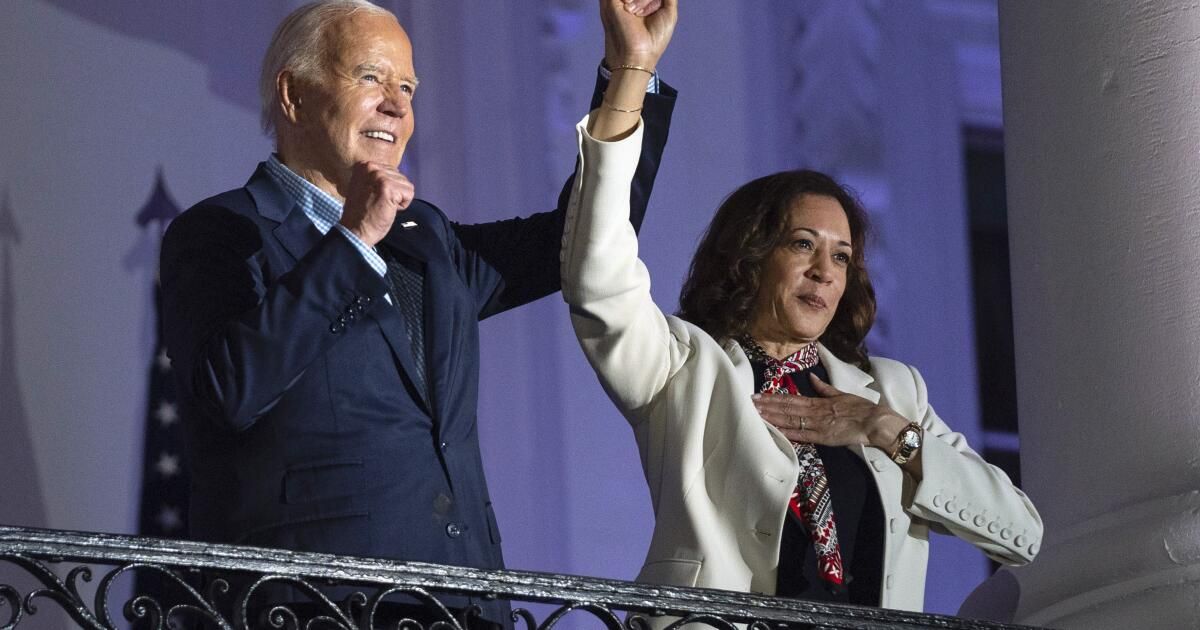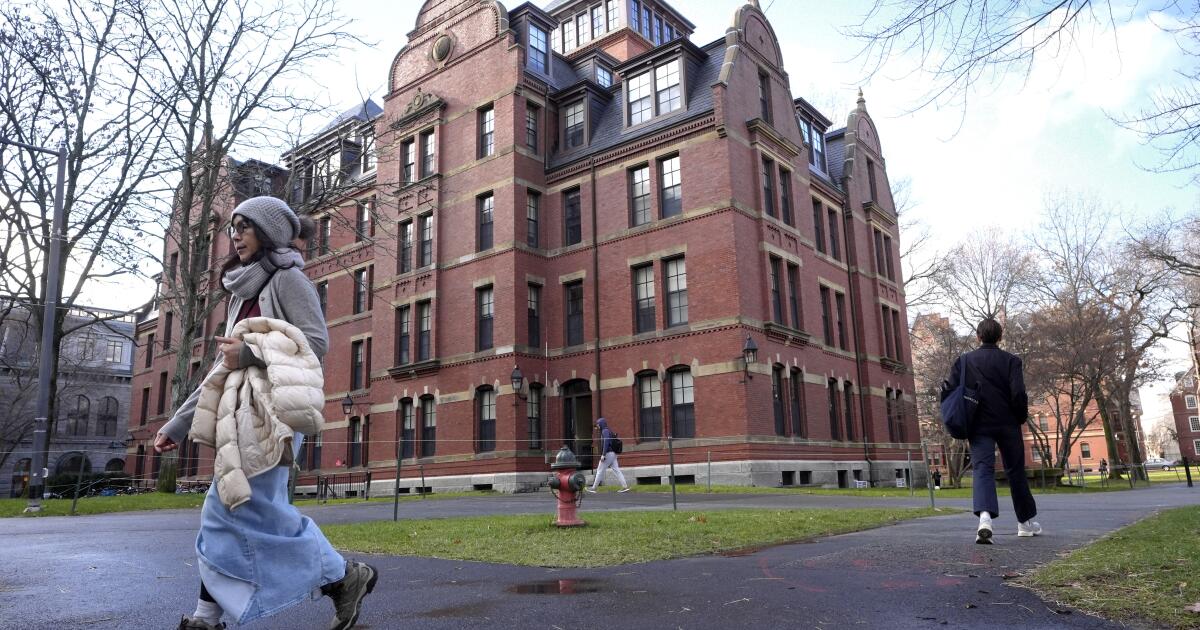In 2016, Donald Trump said he “could stand in the middle of Fifth Avenue and shoot somebody and not lose any voters.” What sounded like an extraordinary exaggeration at the time has proven essentially correct: despite a cascade of disasters, defeats, impeachments, indictments and other events that would have derailed the ambitions of other politicians, Trump’s base remains as strong as ever.
But that may have less to do with Trump’s unique ability to inspire near-sectarian loyalty than with a transformation of voting behavior that has been decades in the making.
This resilient political base is no longer just a Republican phenomenon. Yes, President Biden’s disastrous debate performance sparked an unprecedented outcry from Democratic Party leaders, media personalities and donors who called on him to resign from office, ultimately precipitating his historic withdrawal from the race on Sunday. But Democratic voters mostly responded to the debacle in a way that was eerily similar to their Republican counterparts’ unwavering adherence to Trump, chafing at calls for change from party elites.
Partisan loyalty and commitment to politicians they see as having fought and won for their worldview have pushed partisan voters to overlook the deep flaws of their candidates. While most Democratic voters had been telling pollsters that Biden was too old to be president and should drop out of the race, the same polls continued show a remarkably close race between him and Trump.
In fact, the website The long-awaited 538 election forecast Biden remained competitive even on the brink of his decision to drop out, judging his chance of securing the necessary 270 electoral votes to be close to winning a coin toss, as it was before the debate. survey average There was also a two- to three-percentage-point drop in support for the aging president, even after he endured a daily barrage of news about the effort to remove him from the race. And this was as Trump dramatically survived an assassination attempt, won a pair of favorable court rulings in the criminal cases against him and headlined the national convention that nominated him for a third time.
This calcification does not bode well for a democracy’s ability to address differences between politicians and voters or to find common ground. And it virtually guarantees a close election in November, regardless of who Democrats nominate to replace Biden. Indeed, polls show virtually all of the major Democratic candidates facing Trump are essentially within two or three points of where Biden was before he stepped aside.
Trump has weathered felony convictions, a series of successful lawsuits, and a phalanx of former subordinates who have spoken out against the dangers of his return to the White House, largely because of a pernicious force known as negative partisanship. Americans are Identifying They define themselves by what they oppose rather than what they support, making negative partisanship the dominant driver of voting behavior among those registered with either major party.
The overwhelming support of voters for Trump and Biden alike says more about the state of our society than it does about the appeal of a pair of historically unpopular candidates. Americans are entrenched in partisan trenches of our own making, and the near-term outlook for finding middle ground looks bleak.
We may have felt like we were on an out-of-control political roller coaster since the Biden debate disaster, which was just the first in a series of momentous news events. And yet, the polling averages have not risen more than three points in any direction as a result. Likewise, there is little reason to think that the president’s seemingly momentous withdrawal from the campaign, regardless of who succeeds him as the nominee, will change the fact that this will be another close election.
Mike Madrid is a political consultant and author of “The Latin Century“How America’s Largest Minority Is Changing Democracy”












